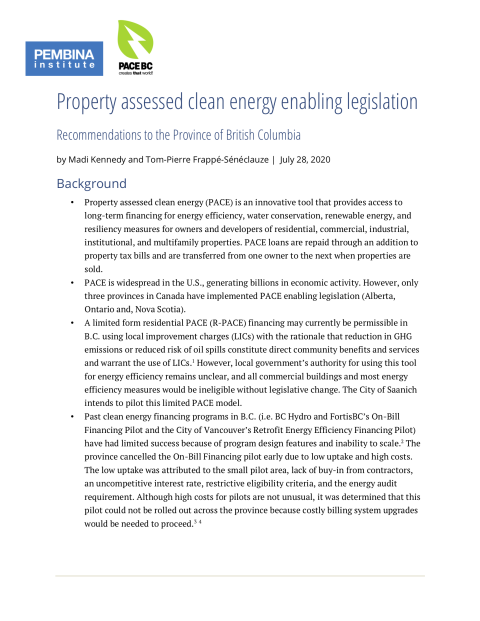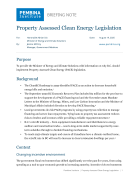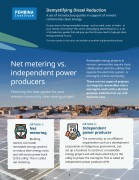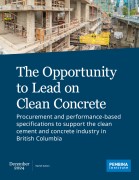Property assessed clean energy (PACE) is an innovative tool that provides access to long-term financing for energy efficiency, water conservation, renewable energy, and resiliency measures for owners and developers of residential, commercial, industrial, institutional, and multifamily properties. PACE loans are repaid through an addition to property tax bills and are transferred from one owner to the next when properties are sold.
We recommend the Province of British Columbia implement enabling legislation for residential and commercial PACE programs. PACE programs can be phased in but need to be set up for scale at the outset to be successful. For this the province should:
- Amend the Community Charter and Vancouver Charter to create enabling legislation for PACE.
- Support the creation of working groups (led by the province or a third party) to design R-PACE and C-PACE programs, provide recommendations to local governments on how to structure PACE bylaws, and identify a potential provincial third-party administrator for a coordinated province-wide approach. Stakeholders to be included are the construction industry (e.g. UDI), the renovation industry (e.g. Home Energy Performance Council), financial institutions, institutional investors (e.g. Canada Infrastructure Bank), mortgage insurers (CMHC), building owners and managers (e.g. BOMA), environmental groups, local governments, and the Federation of Canadian Municipalities.
- Signal its interest in creating a loan loss reserve fund to support and reduce risk for a provincially scaled PACE program, and use the stakeholder engagement processes described above to validate the benefits of such a fund and clarify its terms.
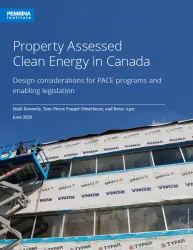
This backgrounder is a B.C.-specific follow-up to our larger PACE report published in early 2020.

